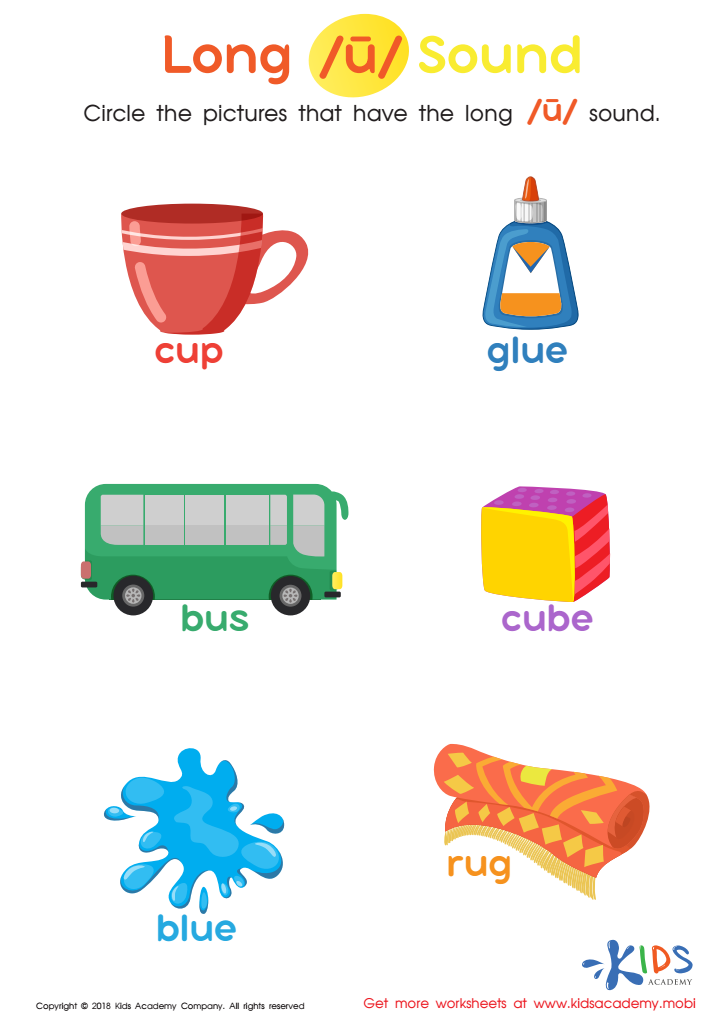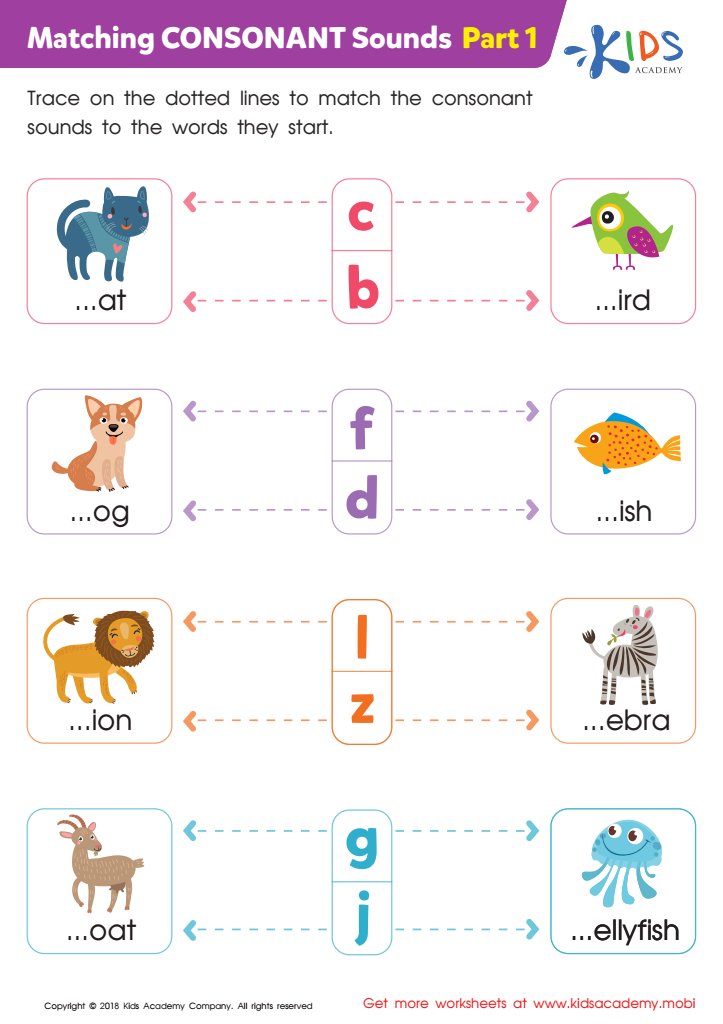Phonics Skills Normal Vowels and Consonants Worksheets for 6-Year-Olds
4 filtered results
-
From - To
Discover engaging Phonics Skills Worksheets designed for 6-year-olds, focusing on normal vowels and consonants! Our comprehensive resources provide a fun way for young learners to enhance their phonemic awareness. With a variety of activities, including matching, sound recognition, and fundamental reading exercises, these worksheets are perfect for reinforcing essential phonics skills. Each activity is crafted to inspire curiosity and boost confidence in reading and writing. Whether used at home or in the classroom, these worksheets make learning enjoyable while laying a solid foundation for future literacy success. Start your child's phonics journey today with our beautifully designed, age-appropriate materials!


Short Vowels /e/, /i/, and /u/ Worksheet


Long «u» Sound Worksheet


Long and Short Vowel Sentences: Assessment Worksheet


Matching Consonant Sounds: Part 1 Worksheet
Phonics skills, particularly focusing on normal vowels and consonants, are essential for 6-year-olds as they form the foundational building blocks for reading and writing. At this age, children are beginning to connect sounds with letters, enabling them to decode words. Mastering phonics helps enhance their reading fluency, which is crucial for their comprehension and overall academic success.
Teachers and parents should prioritize phonics because it promotes confidence in young learners. As children become proficient in recognizing standard sounds, they can tackle increasingly complex texts, fostering a love for reading. Additionally, strong phonics skills help in spelling, allowing children to independently write sentences and express their thoughts clearly.
Understanding phonics also aids in identifying and addressing learning difficulties early. Children struggling with these basic skills may need targeted support to ensure they aren’t left behind. Phonics instruction provides a structured approach to literacy, ultimately reducing frustration and fostering a positive learning environment.
Encouraging phonics at home or in the classroom develops essential skills that empower children to succeed academically and socially. Therefore, it is vital for both parents and teachers to cultivate and support these skills actively during this critical learning stage.
 Assign to My Students
Assign to My Students









